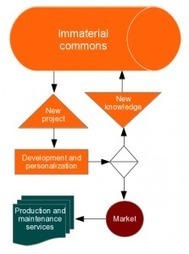Last night I had the pleasure of seeing peer-to-peer and commons theorist Michel Bauwens present at the BizDojo on his speaking tour of New Zealand. Having followed his thought leadership for some time, seeing him speak in person provided an immediate impetus towards action, and had me wondering why peer-to-peer models of production haven’t become a dominant force in our current political and market discourse?
Research and publish the best content.
Get Started for FREE
Sign up with Facebook Sign up with X
I don't have a Facebook or a X account
Already have an account: Login
on peer-to-peer dynamics in politics, the economy and organizations
Curated by
jean lievens
 Your new post is loading... Your new post is loading...
|

Fred Lynch's curator insight,
July 29, 2014 4:29 PM
Interesting article. I heard it said that The Church began in houses (P2P model) and someday will go back to houses (P2P model). The only part of this article that gets a lil' off to me is the demand that there is no set authority, to me that means that the crowd rules and if the blind lead the blind....What do you think? |
















